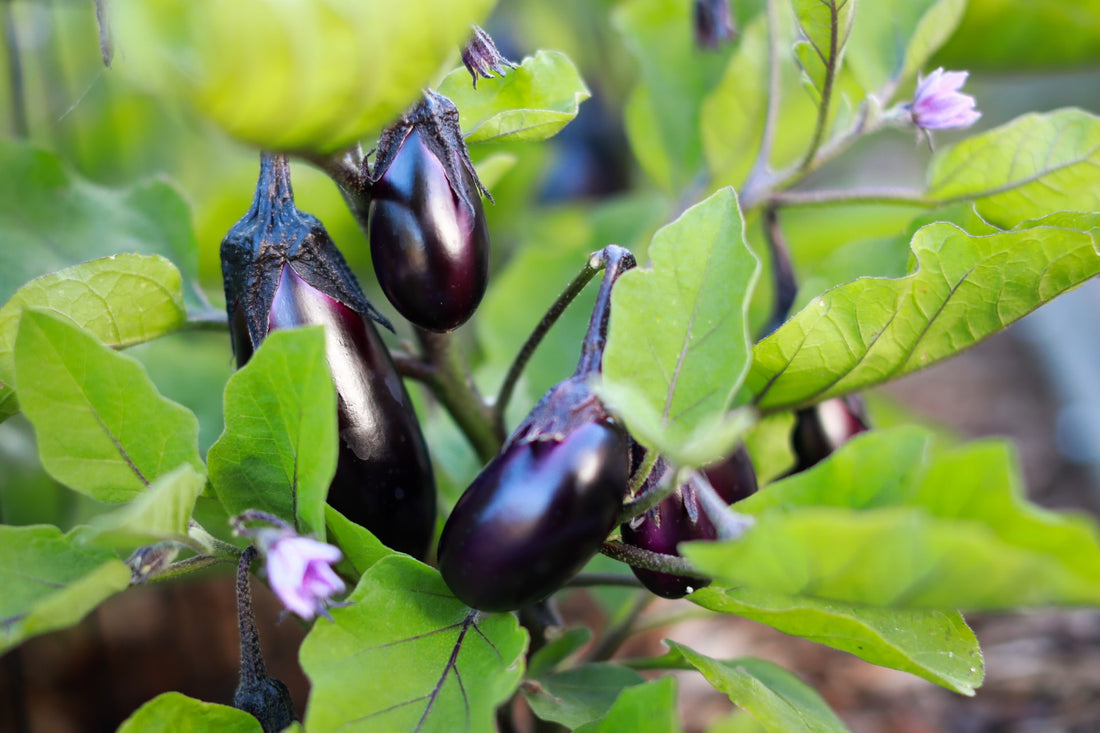A warm weather plant well-known for its delicious role in Eggplant Parmesan, Eggplant is also an excellent garden vegetable. There are many types of Eggplant, beyond the common purple globe-shaped Black Beauty. Grilled eggplant, eggplant meatballs, and fried eggplant are just a few of our favorite ways to enjoy this vegetable.
Like tomatoes and peppers, eggplant require a long, warm growing season. The ideal growing temperature is between 70-85F; this is when they will grow the quickest. When the weather cools down, they will still grow but much slower. Once significantly cold weather sets in, or there is a frost, eggplant season is over.
Black Beauty - Classic heirloom with large purple fruits.
Long Purple - Italian heirloom, long skinny purple fruits.
Rosa Blanca - Round, small purple and white streaked fruit.
How To Grow Eggplant
If you live in a cool climate, it is best to start seeds indoors to give the eggplant seedlings time to develop and get a head-start. You can start seeds two months in advance of planting, usually around the same time you're starting tomato seeds indoors. Eggplants grow well in containers.Starting seeds indoors usually requires the use of seed-heating mats, since the eggplant seeds will only germinate in soil temperatures between 70-90F. Transplant seedlings after all danger of frost has passed and soil temperatures are above 55F. We recommend waiting 2-3 weeks after the last expected frost just to be sure.
Sowing
- Plant or transplant to a location with full sun.
- Plant seeds 1/4” deep, and 2' apart.
- Transplant seedlings 2-3' apart in rows 3' apart.
- Water the seedlings well and lay mulch to reduce weeds and retain moisture.
Care
- Stake the plants to ensure they don't tip over once they start producing fruit. This is especially important with larger varieties. Staking also keep fruits off the ground where they can become deformed or diseased.
- For larger varieties, restrict the plant to 4-5 fruits per plant. This is done by pinching off extra flowers. It helps the plant produce larger fruits since it only has to concentrate on growing those 4-5.
- Water regularly and consistently. Eggplant need at least 1” of water per week. Water enough so that the soil is moist 6” deep.
Harvesting
- Eggplants are ready for harvest when the skin is glossy and firm, and the fruit has almost reached the expected mature size. Fruits ripen over time; pick each one as it matures so the plant can focus on growing more fruits.
- Eggplants left on the plant too long become dull, a little tough, and produce excessive seeds.
- Freshly harvested eggplant will stay fresh in the refrigerator for up to a week. Store it in a paper bag. It's best to use it as soon as possible, though.



